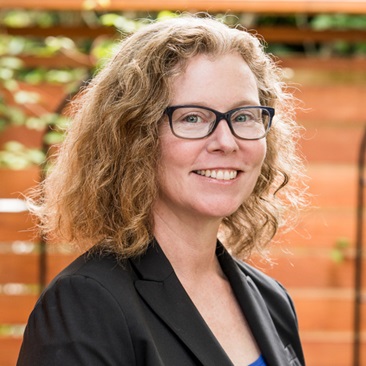full-time faculty teaching and conducting research in political science
of Maxwell faculty conduct research focused outside of the U.S.
graduate students in residence; fewer than 12 admitted each year
Undergraduate Studies
Graduate Studies

I am Maxwell.
Civic engagement is a core value for me. I have always aspired to help the communities I’m from.” Mazaher Kaila, a Maxwell alumna and third-year student at Syracuse University's College of Law, moved with her family from Sudan to Central New York when she was four years old. “I realized that to make meaningful change in society, I needed to understand the systems that power it—government and politics—and that’s insight I would gain by studying political science.”
Mazaher Kaila ’19, L’22
political science, law
Pralle Discusses Federal Flood Insurance, Flood Maps in Grist Article
August 22, 2022
Grist
The number of National Flood Insurance Program (NFIP) policies has decreased by nearly 9 percent in the last year. This comes after the Federal Emergency Management Agency (FEMA) overhauled the program's insurance pricing system. The policy drops come at a time when it's more important than ever for people living in flood zones to purchase insurance.
Sarah Pralle, associate professor of political science, says that while the preliminary numbers of dropped policies are concerning, they’re part of a wider problem that extends back before the NFIP’s restructuring. Americans living in flood-prone areas tend not to buy insurance, making premiums higher for those who do, because the insurance pool is smaller.
But the bigger problem, she believes, is rooted in FEMA’s flood maps, which depict current levels of disaster risk using data from the past, instead of projections for the future.
“You might buy a house just outside the edge of a flood zone, thinking you’re safe, but you’re going to have that mortgage for 30 years,” she says. “And probably within 30 years your house is going to be in a flood zone.”
The solution, Pralle believes, is to adjust FEMA’s flood maps to encompass a larger number of people, thereby widening the insurance pool and bringing down premiums for everyone.
Read more in the Grist article, "After FEMA overhaul, hundreds of thousands of Americans are forgoing federal flood insurance."
Related News
Commentary

Aug 1, 2024
Commentary

Jul 31, 2024
Commentary

Jul 30, 2024
BaoBao Zhang Joins First Cohort of AI2050 Early Career Fellows
One of only 15 scholars chosen from across the U.S., Zhang will receive up to $200,000 in research funding over the next two years. Zhang will use the funding to partner with the nonprofit, non-partisan Center for New Democratic Processes to test whether public participation in AI governance is increased through the creation of public assemblies, known as “deliberative democracy workshops.”
Baobao Zhang
Assistant Professor, Political Science Department

Pralle Discusses Federal Flood Insurance, Flood Maps in Grist Article
August 22, 2022
Grist
The number of National Flood Insurance Program (NFIP) policies has decreased by nearly 9 percent in the last year. This comes after the Federal Emergency Management Agency (FEMA) overhauled the program's insurance pricing system. The policy drops come at a time when it's more important than ever for people living in flood zones to purchase insurance.
Sarah Pralle, associate professor of political science, says that while the preliminary numbers of dropped policies are concerning, they’re part of a wider problem that extends back before the NFIP’s restructuring. Americans living in flood-prone areas tend not to buy insurance, making premiums higher for those who do, because the insurance pool is smaller.
But the bigger problem, she believes, is rooted in FEMA’s flood maps, which depict current levels of disaster risk using data from the past, instead of projections for the future.
“You might buy a house just outside the edge of a flood zone, thinking you’re safe, but you’re going to have that mortgage for 30 years,” she says. “And probably within 30 years your house is going to be in a flood zone.”
The solution, Pralle believes, is to adjust FEMA’s flood maps to encompass a larger number of people, thereby widening the insurance pool and bringing down premiums for everyone.
Read more in the Grist article, "After FEMA overhaul, hundreds of thousands of Americans are forgoing federal flood insurance."
Related News
Commentary

Aug 1, 2024
Commentary

Jul 31, 2024
Commentary

Jul 30, 2024

